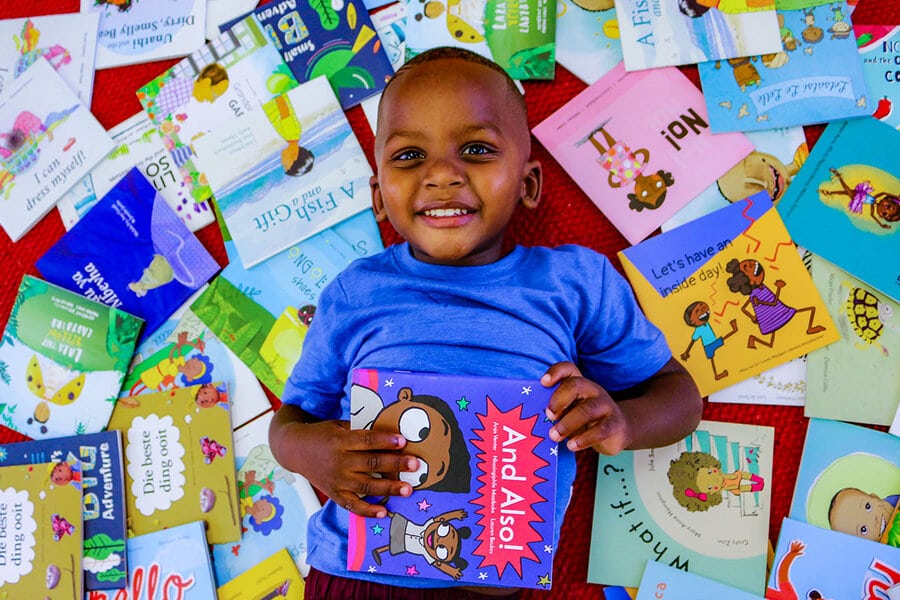One primary reason so few households have books, says Book Dash Director Dorette Louw, is that they simply can’t afford them. Around 6 in 10 South African children live in poverty. And the fact that so many families are priced out of the glossy picture books on store shelves in turn drives the cost up more, because printing is more expensive in smaller quantities.
“We were devastated by the idea that having a book was a luxury good in South Africa,” Ms. Louw says of the organization’s founding.
Quick creativity
Book Dash’s model is deceptively simple. The organization, started in 2014, recruits professional writers, illustrators, designers, and editors to volunteer for daylong marathon book-creation sessions.
Using only a rough idea developed ahead of time by the writer, teams of four – a writer, editor, illustrator, and designer – meet and spend 12 hours honing the story, writing and editing the text, drawing the characters, and laying out the book.
“There’s a lot of camaraderie that develops, sitting around a table bouncing ideas and helping each other work,” Ms. Mkhize says. She’s participated in four “dashes” since 2015 – including two virtual events during the COVID-19 pandemic – as a designer, responsible for laying out the text and illustrations. Her favorite work, she says, is a brightly colored book called “Unathi and the Dirty, Smelly Beast,” about a girl and her adventures with her dog.
To date, Book Dash has produced more than 100 different books, sprawling across topics ranging from the quirky – a runaway pig, a sloth searching for the perfect spot to nap – to the profound – the circle of life, the value of diversity. Although the majority were originally written in English, many have also been translated into other South African languages. The country’s publishing is heavily dominated by titles in English and Afrikaans, which account for nearly 90% of all book sales here.
That means few children have access to books in their first language, says Ms. Louw.
The organization then distributes its books through literacy organizations and other educational charities. It also makes the PDFs of all its books freely available on its website, and sells print copies via an online bookstore for 40 rand ($2.80) each.
In the rural community of Mtwalume on South Africa’s east coast, a community organization called Thanda has long distributed Book Dash books to children to help encourage them to read at home.
“We have a library, but we noticed kids were often reluctant to give the books back,” says Janet Duma, who works on Thanda’s literacy programs. “Now anytime they want to read, they can grab a book from their shelf. They have books accessible to them at all times.”
Reading at home
That mission became especially urgent in March of last year, when South Africa’s schools abruptly shut down as the country went into a coronavirus lockdown. As was the case in countries around the world, parents suddenly became teachers, often without any of the online support systems available to families in wealthier communities.
“Online learning isn’t an option if you don’t have a way to get online,” says Kirstin Nash, the head of marketing, communications, and partnerships at Thanda. So Thanda, which once ran after-school reading programs for local kids, began designing at-home activities like puzzles, art projects, and treasure hunts themed around Book Dash books, and sending Ms. Duma and her colleagues to show families how to use them.
When South Africa’s second wave of COVID-19 infections crested in January 2021, Mtwalume was especially hard hit, Ms. Duma says. That month, Thanda distributed a Book Dash book called “Circles,” about a mother and son vulture pair who watch an old antelope die, and the new circle of life that begins as nature reclaims his body.
“It’s not just our bodies we leave behind when we die,” the mother explains. “We also leave our lessons and our love and our memories.”
“It was a way to help kids talk about their grieving process,” Ms. Duma says. “And for families to have those conversations together too.”
Source - The CS Monitor


Sorry! No comment found for this post.